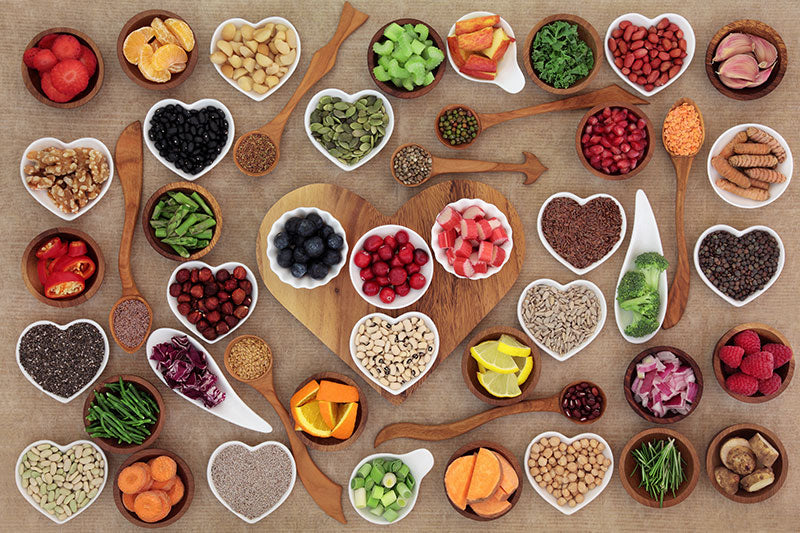8 Common Nutrition Myths
It always happens. Your favourite healthy foods are put on the bad food list by some white coat or “scientific” study. You replace it with foods they claim are healthy one to find out they're out of vogue six month later. What’s worse is that myths are always standing in the way like backs in rugby attacking the fringes. While you can’t do anything about the latest studies or bad food lists, you can enjoy busting some myths.
 Low fat foods have a secret they’re hiding. They replace fat with unhealthy ingredients like: • Flavour enhancers. • Thickeners. • Salt. • Sugar. These things are worse for you than your favourite fatty foods. In fact, full-fat Greek yoghurt is better for you than the low fat yoghurt alternatives.
Low fat foods have a secret they’re hiding. They replace fat with unhealthy ingredients like: • Flavour enhancers. • Thickeners. • Salt. • Sugar. These things are worse for you than your favourite fatty foods. In fact, full-fat Greek yoghurt is better for you than the low fat yoghurt alternatives.
 This myth seems here to stay for some reason. The truth is that eating eggs won’t raise your cholesterol. Of course, if you are eating eggs along with loads of carbs, then the myth is true. Otherwise, in eat eggs in moderation.
This myth seems here to stay for some reason. The truth is that eating eggs won’t raise your cholesterol. Of course, if you are eating eggs along with loads of carbs, then the myth is true. Otherwise, in eat eggs in moderation.
Add low fat foods to your diet, they are the healthier option.
 Low fat foods have a secret they’re hiding. They replace fat with unhealthy ingredients like: • Flavour enhancers. • Thickeners. • Salt. • Sugar. These things are worse for you than your favourite fatty foods. In fact, full-fat Greek yoghurt is better for you than the low fat yoghurt alternatives.
Low fat foods have a secret they’re hiding. They replace fat with unhealthy ingredients like: • Flavour enhancers. • Thickeners. • Salt. • Sugar. These things are worse for you than your favourite fatty foods. In fact, full-fat Greek yoghurt is better for you than the low fat yoghurt alternatives.
Stay away from dairy. It’s bad for you.
You’ve probably heard or read that dairy is bad for you. However, dairy is an important part of a daily diet. Thus, eating dairy gives you multiple nutrients such as: • Potassium. • Calcium. • Protein. When trying to lose weight, go for low sat-fat choices.All organic foods are healthier.
You’ve probably heard it a thousand times, but it’s a myth. Just because you’ve eaten food that was grown on an organic farm doesn’t translate to healthy. Foods that are produced organically have the same nutrient levels. The only difference is that the pesticides and chemicals used were controlled. So shop for you food based on taste, quality and ethics, not the label.Avoid eating eggs. They raise your cholesterol.
 This myth seems here to stay for some reason. The truth is that eating eggs won’t raise your cholesterol. Of course, if you are eating eggs along with loads of carbs, then the myth is true. Otherwise, in eat eggs in moderation.
This myth seems here to stay for some reason. The truth is that eating eggs won’t raise your cholesterol. Of course, if you are eating eggs along with loads of carbs, then the myth is true. Otherwise, in eat eggs in moderation.





